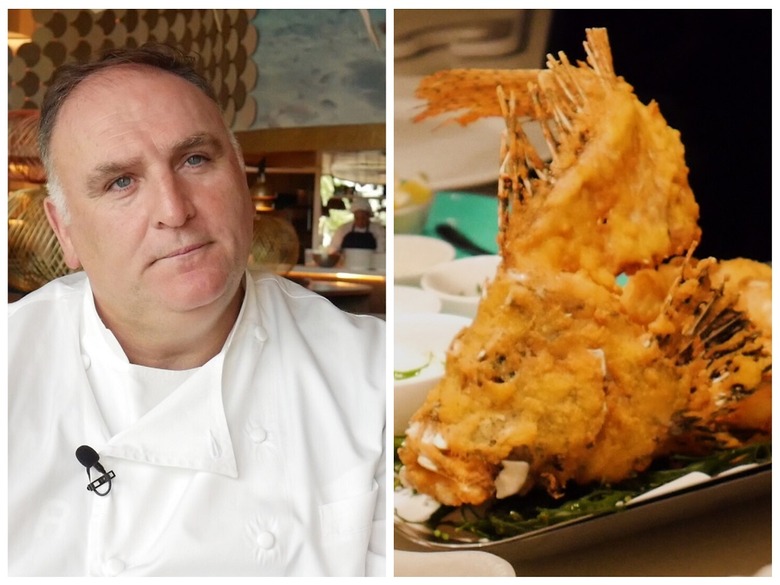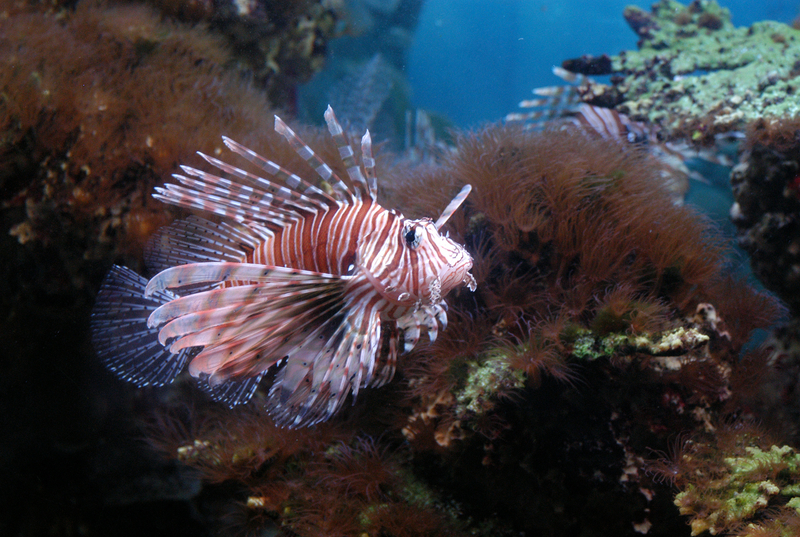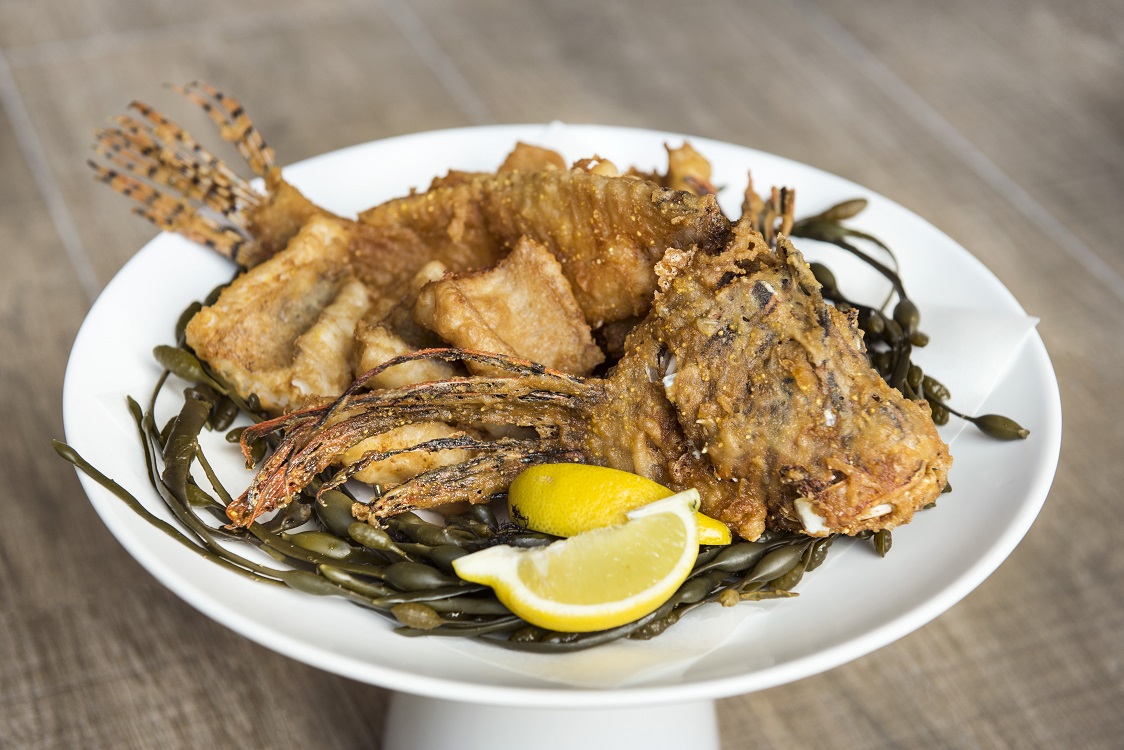José Andrés' New Restaurant Serves Lionfish To Save Ocean Ecosystems
James Beard Foundation Humanitarian of the Year José Andrés is continuing his quest to save the entire world with his latest magnanimous restaurant venture. Fish, the celebrity chef's new restaurant located at The Cove at Atlantis, Paradise Island in the Bahamas, serves lionfish, an invasive species that threatens the ecosystem of the surrounding ocean. By offering this rare selection, Andrés hopes to prevent the species from doing further damage to the region's coral reefs.
"One of the bigger problems we have in the Caribbean — in the Gulf of Mexico as a whole — is these lionfish, one of the most beautiful fish in the ocean," Andrés told The Daily Meal.
Despite its beauty, the lionfish is also one of the most dangerous fish in the ocean. Andrés explained that lionfish are not native to Caribbean waters and have no natural predators there.
"They multiply endlessly," he noted. "They devour every other fish, especially the babies of lobsters, crabs, and anything else you might need."
A female lionfish can release up to 2 million eggs in just one year, and a lionfish's lifespan can exceed 15 years. Lionfish eat voluminously and indiscriminately — they'll consume nearly anything that will fit into their mouths, which can expand up to twice their own body's size. According to some estimates, a single lionfish is destructive enough to wipe out 80 to 90 percent of a reef's biomass in just one month.
The species infiltrated Bahamian waters in 1992, after Hurricane Andrew smashed an aquarium harboring the venomous fish, according to NPR, releasing them into the ocean. It was only a matter of time before they multiplied to the point of menace.
"Having lionfish on the menu is a very big message," Andrés explained.
The chefs at Fish prepare the lionfish by frying it whole, then serving the fish on a bed of vegetables with a side of tartar sauce."If potatoes are good when they are fried, my lionfish is a natural for frying," promised the famous restauranteur. "It's going to become — I guarantee you — the number one selling item on the menu."
One restaurant reviewer compared the dish to "a really good fish and chips (without the chips)," and claimed the best part was consuming the collar.
Jacqui Wedewer, The Daily Meal's video producer, was given the opportunity to try the dish. "Surprisingly, it didn't taste fishy at all," she said. "It's a really light white fish. It tasted delicious fried."
Preserving the Caribbean waters and satisfying fried food cravings aren't Andrés' only intentions in cooking this particular fish. The chef, recently named one of Time's 100 Most Influential People of 2018, hopes the lionfish will provide a promising financial opportunity for local fishermen, many of whom have "long family traditions of being on the ocean and making the sea their way of life," Andrés said. "We're going to be paying top dollar for it."
To prevent damage to the surrounding reefs, lionfish must be hunted using a spear, as opposed to other commercial fishing methods. Creating a market for the species will in turn create jobs for local Bahamians, which, as Andrés puts it, "is never a bad thing."
Andrés often fishes for the consumptive species himself, saying that the hunt has become a hobby. "It's really fun," he relayed, "and I know that I'm going to be helping to make sure the Caribbean [is] thriving."
After an eventful past year spent sparring with the president over immigration, providing aid to those affected by wildfires in California, and most notably delivering millions of meals to people in hurricane-ravaged Puerto Rico, this newest act shows that José Andrés plans to continue his virtuous and innovative efforts to be the hero the world needs right now.
Travel expenses for this story were paid for by The Cove at Atlantis.


